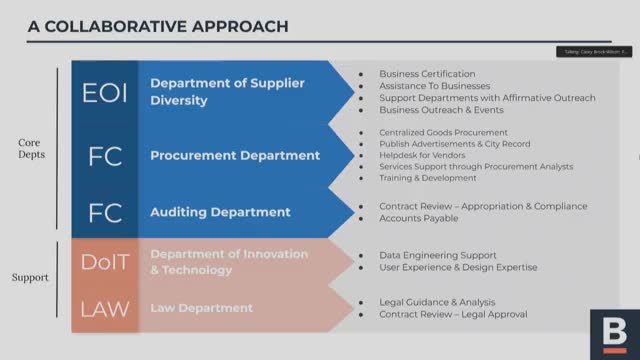Article not found
This article is no longer available. But don't worry—we've gathered other articles that discuss the same topic.

Two‑bid civilian flagger RFP drew criticism; First Armor and community leaders press city for transparency

Boston council hearing presses administration to review White Stadium procurement after single-bid concerns

